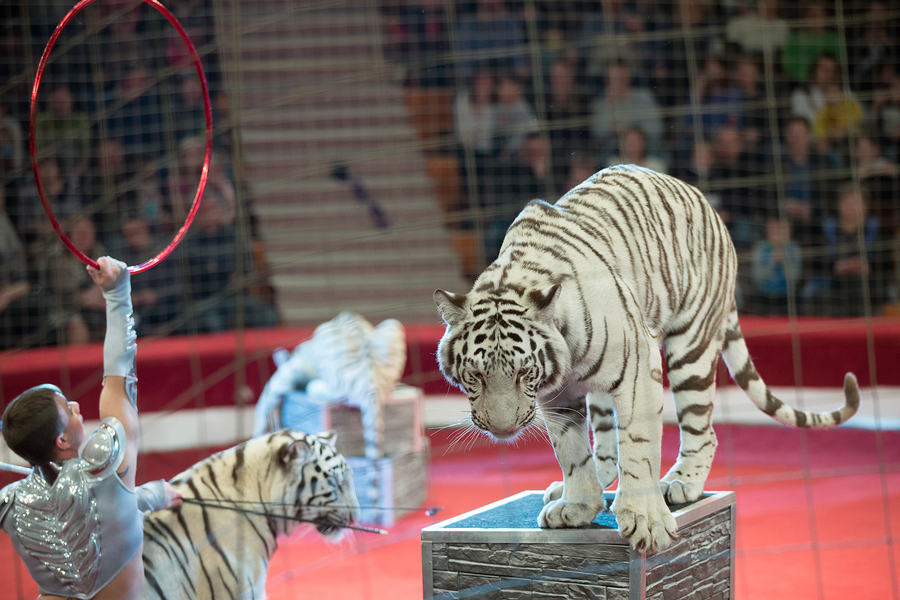This week, New Jersey Governor Phil Murphy and his state made history when he signed into law, a bill banning the use “of numerous wild animal species, including elephants, tigers, lions, bears and primates, in circuses and traveling shows.”1 The measure, which recognizes both the animal welfare concerns and the public safety dangers posed by such shows, passed the state Senate unanimously in June and the General Assembly in October.
Well done, New Jersey.
“To date, four states and close to 150 localities across 37 states have passed laws governing the use of wild animals in circuses and traveling shows and many more are in the process of considering legislation. In 2016, California and Rhode Island banned bullhooks, a cruel elephant training tool. In 2017, Illinois and New York banned the use of elephants in traveling shows. In Hawaii, we await the signature of Gov. David Ige on a regulation enacted by the board of agriculture to ban dangerous wild animals, including tigers, lions, bears, primates, elephants and crocodiles, from being brought into the state to perform in circuses, carnivals and other public exhibitions.
But New Jersey’s law – named “Nosey’s Law” in honor of an arthritic elephant who last year was seized following an Alabama court order and who now enjoys life at a Tennessee sanctuary — goes a step further by banning virtually all wild animals commonly used by circuses and traveling shows.”2
This move follows what has been happening globally over the last couple of years. Indeed, Bolivia, Colombia, Costa Rica, El Salvador, Guatemala, India, Mexico, the Netherlands, Peru, and a couple dozen more countries have passed laws banning the use of wild animals in circuses. And the UK has pledged to ban the use of wild animals in traveling circuses by 2020.
RELATED STORY:
While these reforms have been a long time coming- and came too late for some- they are better late than never and part of a larger conversation the world is starting to have about animals in general. Not just whether or not we should cage animals but if we decide to eat them, how we can best respect and care for them during that process. (As you will remember, I eat a plant-based diet.)
“Wild animals used in traveling shows are subjected to prolonged periods of extreme confinement in dark and unventilated trucks and trailers as they are hauled from venue to venue for months at a time. When they are not performing, elephants are chained or confined to small pens and big cats are kept in transport cages that typically measure approximately four feet by seven feet – barely bigger than the animals themselves. The animals are routinely deprived of adequate exercise, veterinary care, or even regular food and water by exhibitors whose primary concern is heading out of one town to set up in the next.
Wild animals are not willing performers. Elephants have no desire to balance on their front legs, tigers don’t freely leap through fiery hoops and bears have no interest in riding bicycles. Through cruel training methods, the animals learn that they must perform on command or they will suffer the painful consequences.”3
RELATED STORY:
RELATED STORY:
For those of us who love animals and hate animal cruelty, the news that Ringling Bros. and Barnum & Bailey Circus was done on May 22nd, 2017, was sweet, sweet music. While we felt for the many employees, many of whom were second, third and even fourth-generation circus performers, the animals were suffering terrible treatment under horrible conditions.
We would like to bring attention to and thank the “states and localities that are respecting their constituents’ wishes” and realizing that we don’t need to do this. As a self-aware and civilized society, we can choose a different path, a more compassionate way forward.
SOURCE:












